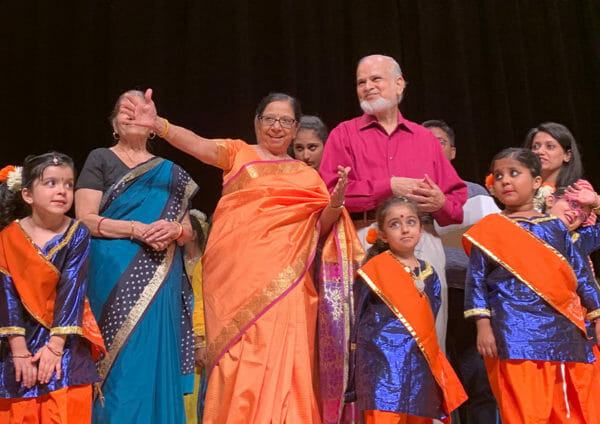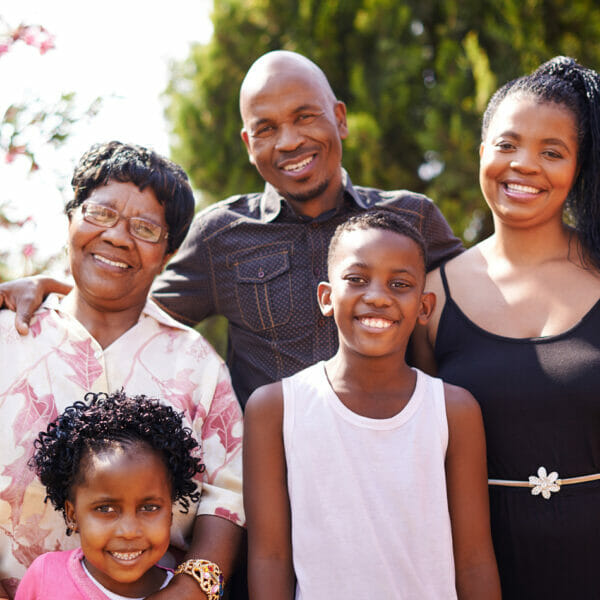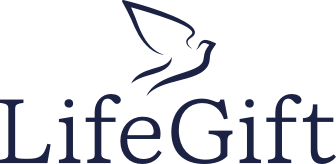MULTICULTURALISM
Success built on a strong multicultural perspective
Texas is a diverse state filled with a rich history and culture. Although each ethnic and cultural group has their own unique perspective on organ and tissue donation, generosity and helping others in need are valued as important components of all communities.
LifeGift works directly with multicultural groups in Southeast, North and West Texas to share donation and transplantation information in a way that speaks to each community’s particular beliefs and values in a sensitive and relevant way.


WHY IT MATTERS
Serving all communities
Multicultural communities often wait longer on the national organ transplant waiting list for a life-saving gift because there are not enough donors from within their own communities. Although donation and transplantation can take place between individuals from different racial or ethnic groups, transplants have a higher likelihood of success when organs are matched between members of the same racial or ethnic background. Up-to-date numbers on Texas’ waiting list can be found on the Health and Human Services Administration’s website.
For more information about LifeGift’s programs, please contact Dagmar Climo, LifeGift Director of Communications, at 713-349-2570 or dclimo@lifegift.org.

Frequently Asked Questions
Know the facts and let’s have a conversation
There are many common misconceptions about donation. Take a look at some of the most frequently asked questions about donation and learn more about the healing power of organ and tissue transplantation.
Will my religious beliefs be respected? What religions support organ and tissue donation?
All major religions in the United States consider organ and tissue donation a generous, caring gift to others in need. At LifeGift, we respect your religious and spiritual beliefs, whatever they may be, and will work with you and your family to answer any questions you may have about donation and transplantation.
Do you have to be a certain age to donate?
People of all ages may be able to donate their organs and tissues after they pass away, from newborns to older adults. At the time of donation, medical professionals will evaluate your health and medical history to determine which organs and tissues are healthy enough to be donated.
Would saving my life still be a priority if I’m a registered donor?
Absolutely. Every life is treated as a priority – including yours. It’s only after all efforts to save a life have been exhausted that donation is an option.
As a donor, can you have an open casket funeral?
If an open casket funeral is important to you or your loved ones, these plans should not be impacted by donation. It’s important to share this information with the LifeGift coordinator at the time of donation so they can work with your chosen funeral home to help make that happen.
How many lives can one donor save and heal through organ and tissue donation?
One person can save and heal up to eight lives through organ donation and countless others through tissue donation. Donation is an opportunity to help potentially dozens of people through one generous act of caring.
Who can benefit from my donation?
People of all ages and backgrounds make up the 100,000+ people on the national transplant waiting list. Often, they’re people who are very sick with end-stage organ failure and a transplant is their last hope.
What role does my family and loved ones play when it comes to making a decision?
If you’re 18 or older, your decision to register as a donor is a legal decision that will be honored after your death. We encourage you to share your decision with your family so they can be prepared to support your choice. If you haven’t registered to be a donor, your family will be asked to make a decision on your behalf.
If you are between the ages of 15 and 18, you may be able to register as a donor and your parents or guardians will have to affirm your decision at the time of donation. It’s important to have a conversation about your decision during your lifetime so that they can be prepared to honor your choice.
Our Celeste was an amazing young woman and was giving and caring beyond belief. From her example, our family has come to know about selfless giving and joy-filled receiving. We know about devastating loss and true joy.
– Terri Contreras, Donor Mother
Let’s Talk About Donation
Donation is a selfless act of giving that often starts with a conversation
Talking about organ and tissue donation with others can be challenging and inspiring. At LifeGift, we’re on a mission to provide you with resources and tools to make informed decisions that are best for you and your family. Cultural backgrounds and language nuances are important factors when it comes to having a healthy conversation about donation. We hope these resources will offer insight and give you the opportunity to gain new perspectives and knowledge.
Why should I talk with my family about donation?
End-of-life discussions, like many important conversations, can help ensure that the people who are closest to you understand what matters most to you and how you’d like certain decisions made when you can’t make them for yourself.
What do we need to discuss when it comes to donation?
Consider starting with your support for donation and your decision to be a donor. If you are over the age of 18 and have registered as a donor, your decision is legal authorization for donation. Many donor families have shared that they appreciate their loved one making the decision for themselves during their lifetime.
If you are under the age of 18 or have not yet registered as a donor, you can share your support for donation and explain how you would like your family to make decisions for you in the event of your death.
How do I start the conversation?
Like many important conversations, you don’t have to have one big discussion. Think of your donation discussions as ongoing conversations where you and your loved ones can learn more about one another’s beliefs, values and decision-making processes.
Some people choose to broach the topic with their family when they renew their driver’s license or state ID card. Others choose to show their license or ID card to their family and highlight the donor heart as a way to open the conversation. Another option is to find and share a story about a donor family or recipient and use that as an opening to discuss your own feelings about donation.
What if my family and I disagree?
It’s okay! Not everyone agrees all the time. The important thing is to start and continue the conversation so that you are working toward understanding. Perhaps your family has questions about donation or is simply uncomfortable talking about end-of-life issues. You can share information from LifeGift and Donate Life Texas to help answer their questions. Often, repeated conversations over time and from a place of empathy help people become comfortable talking about difficult topics.
If donation is important to you, remember to take the steps to document your decision so that you can be confident your decision will be honored.
How do I answer difficult questions about donation?
You can find facts and frequently asked questions on our website. If a question arises that you don’t know the answer to, feel free to reach out to LifeGift for more information. At the moment, you can say something like “I’m not sure what the answer to that is, but I know where we can get more information about this. Let’s continue this conversation at another time when we have more facts.”
Have additional questions? Learn more about the donation process.
